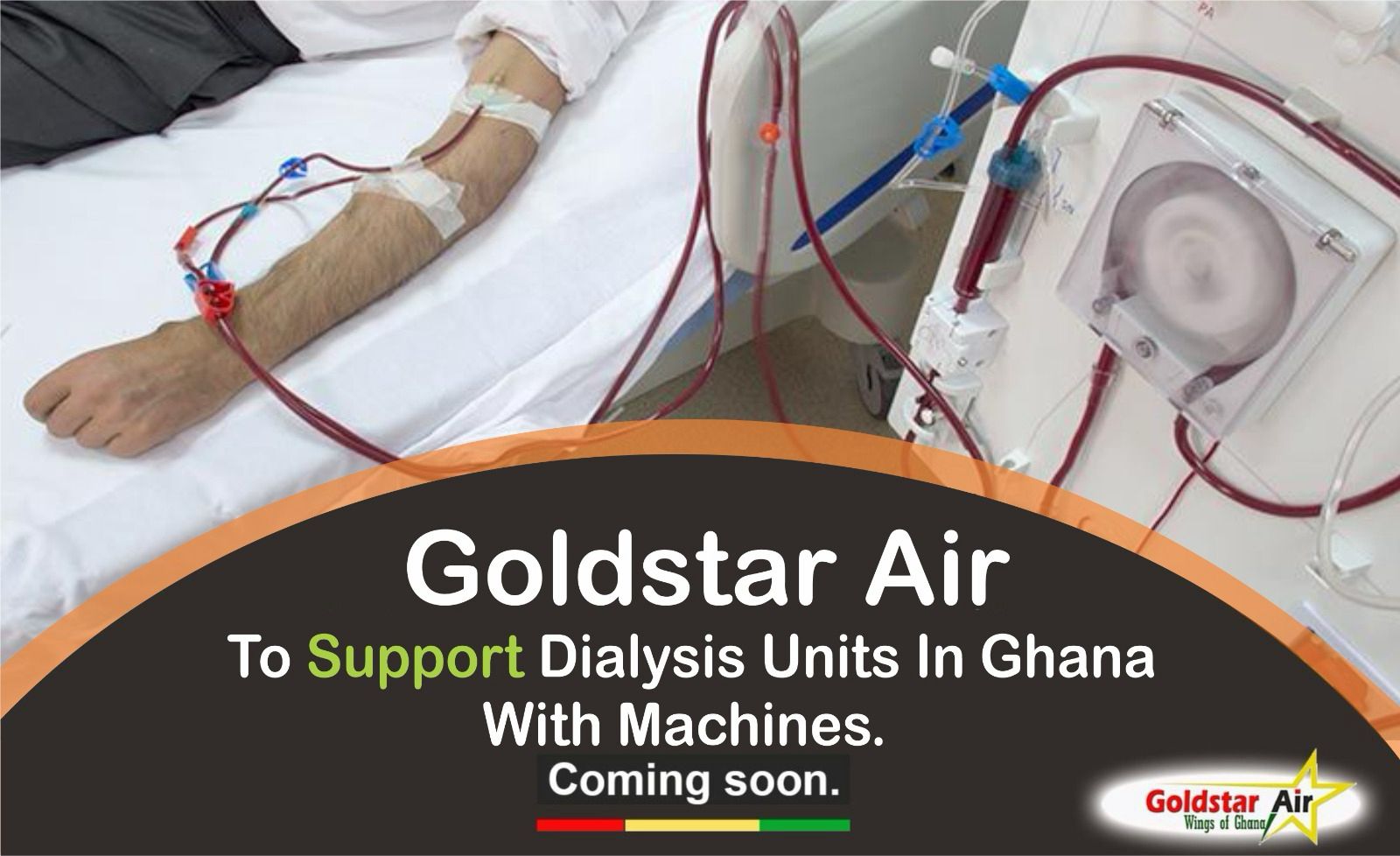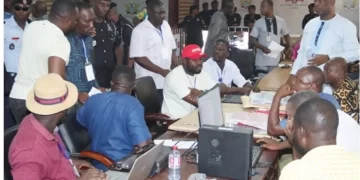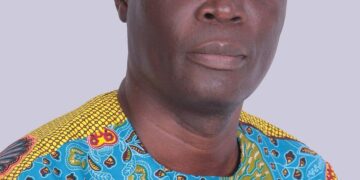
The award-winning international airline Goldstar Air, the Wings of Ghana is proud to announce partnerships with some teaching hospital dialysis units by supporting them with machines and reciprocating it in all regional hospitals.
Dialysis is a lifesaving treatment for people with kidney failure or end-stage renal disease (ESRD). You may stay on dialysis indefinitely or just until you can get a kidney transplant.
In Ghana, many families go through significant difficulties, including selling their properties to take care of a family member with kidney failure. The number of families that have suffered, having to sell properties that were kept for so many years to take care of one person suffering from kidney failure, is a lot in the country.
There are five stages of kidney disease. In stage 5 kidney disease, healthcare providers consider you to be in end-stage renal disease (ESRD) or kidney failure. Right now, kidneys are carrying out around 10% to 15% of their normal function.
Goldstar Air has developed an initiative called Pocket Change For Smile to fund dialysis machines. This initiative will raise funds to cover the cost through our passengers donating spare coins, where donations of foreign or domestic currency are collected in support of the program.
The airline’s 24-hour service will encourage passengers to donate their spare change from their international travel into one of the many designated boxes at the airport lounges, by the check-in counters, at the departure waiting area, and inflight before the arrival at their intended destination.
Dialysis is a type of treatment that helps your body remove extra fluid waste products from your blood when the kidneys are not able to. Dialysis was first used successfully in the 1940s and became a standard treatment for kidney failure in the 1970s. Since then, millions of patients have been helped by these treatments.
According to Kidney Health International, over 90% of Ghanaian kidney failure patients who desperately need dialysis are being denied access to this life-saving treatment. Dr. Elliot Koranteng Tannor and his dedicated team of caregivers have unveiled statistics that expose the harsh reality of the situation.
The report reveals alarming figures. In Ghana, the overall dialysis prevalence is just 38.8 patients per million population. To put it simply, only 38.8 out of every 1 million Ghanaians are receiving dialysis treatment. This prevalence rate falls far below not just the African average (79 per million) but also the global average (296 per million).
Ghana’s rate is even lower than the average for other low and middle-income countries, which stand at 68 per million. These numbers paint a bleak picture, indicating that many Ghanaian patients in dire need of dialysis are unable to access this critical treatment.
Global estimates suggest that Ghana should have around 15,400 patients requiring dialysis. However, the current number of patients receiving dialysis is 1,195. This represents 7.8% of the estimated demand for this life-saving treatment. The rest, a staggering over 90%, are left grappling with a lack of access to the care they need to survive.
According to the Chairman and Chief Executive Officer of Goldstar Air Eric Bannerman, the airline will be expecting the centers to operate 24-hour service at their dialysis centers to take care of any affected patients, including our employees. The dialysis machine will reduce the exorbitant cost of dialysis treatment in Ghana and will offer a glimmer of hope with a lower cost and help employees and families get kidney transplants.
There are two ways to get dialysis, which is Hemodialysis and Peritoneal dialysis. With hemodialysis, a machine removes blood from your body, filters it through a dialyzer (artificial kidney), and returns the cleaned blood to your body. This 3- to 5-hour process may take place in a hospital or a dialysis center three times a week.
With peritoneal dialysis, tiny blood vessels inside the abdominal lining (peritoneum) filter blood through the aid of a dialysis solution. This solution is a type of cleansing liquid that contains water, salt, and other additives. Peritoneal dialysis takes place at home. There are two ways to do this treatment, which are Automated peritoneal dialysis, which uses a machine called a cycler and Continuous ambulatory peritoneal (CAPD) takes place manually. This process can take 60 to 90 minutes.
Dialysis centers in Ghana, though desperately needed, are grappling with limited capacity. The median number of patients per center is just 20. However, despite these constraints, most centers are operating at or even over maximum capacity to meet the overwhelming demand.
The quality of dialysis care in Ghana is also under threat. A significant factor affecting quality is the limited nephrology workforce. Ghana has only 0.44 nephrologists per million population, well below the global average for low and middle-income countries (1.6 per million).
The shortage of nephrologists in the country directly impacts the quality of care, with 57.5% of dialysis centers in Ghana lacking a resident or visiting nephrologist. Without specialized kidney care doctors, it is challenging to adequately monitor patients and provide appropriate treatment.
Many people on dialysis continue to live active lives, working, raising families, and traveling. It is possible to live 10 to 20 years on dialysis. The outlook varies depending on your age, overall health, the cause of kidney failure, and other factors. If you get a kidney transplant, you can stop dialysis when your new kidney starts working.
Goldstar Air takes a strong stand to help Build and support the dialysis units in Ghana because there is going to be an upsurge of kidney diseases with the contamination of all-natural water bodies which most Ghanaians are victims of. Goldstar Air must save this situation for a healthy nation is a wealthy nation.
Illegal small-scale gold mining or galamsey, in Ghana has been linked to kidney failure and other health issues due to the use of mercury, cyanide, lead, arsenic, iron, carbon monoxide, and other chemicals.
Mercury is also associated with brain damage and harm to other vital body organs and can lead to stillbirths in pregnant women and neurological disorders such as tremors, impaired cognition, and muscle weakness, which have been recorded in the country recently.
The mercury is also driving away the fish out of the rivers and sea and it’s becoming muddy and worrying to fishermen who depend on it for their livelihoods.
Lead, in particular, is associated with anemia, can damage the central nervous system, cognitive impairments, and an increased risk of hypertension and cardiovascular disease in adults. The use of these harmful chemicals by illegal miners can also lead to the death of crops that rely on irrigation from polluted rivers.
The recent notice by the Ghana Water Company Limited regarding the challenges in supplying raw water in the Central Region of Ghana, due to the pollution of the Pra River from galamsey activities, has generated public discourse on the looming dangers facing the country if no action is taken to curb illegal mining. The company revealed that the recent demand-supply gap is due to inadequate raw water received at the Sekyere Hemang Water Treatment Plant (WTP) caused by galamsey activities.
Healthcare interventions should focus on early detection and management of kidney problems in individuals living in galamsey areas. Residents in these areas are at a high risk of accumulating mercury in their system through the consumption of foods cultivated from these soils, the inhalation of mercury vapors, ingesting contaminated water and fish, absorption of mercury through the skin, and others. There are no gains to the nation, short or long term, from galamsey.
Galamsey has far-reaching impacts on various sectors and regions and significantly harms Ghana’s tourism industry. Environmental degradation, including deforestation and water pollution, diminishes the natural beauty of tourist sites. Contaminated rivers and landscapes deter tourists, affecting local businesses dependent on tourism.
While galamsey provides short-term economic benefits to individuals involved, it has detrimental long-term economic impacts. Illegal mining activities lead to the depletion of natural resources, reducing the potential for sustainable economic growth.
According to data released by the Ghana Forestry Commission, the country has 2 million peasant farmers and about 1.5 million farmers have lost their farms. Some of them have migrated to other areas and others have gone into galamsey.
Majority of the youth have moved to galamsey because it fetches them money, our agriculture is virtually left in the hands of the aged. The issue of galamsey in food production is something we cannot ignore. In a few years, or 10 years to come, we will not have any agricultural activities in the galamsey areas.
Mr. Bannerman emphasized that the airline’s 24-hour dedication service to Corporate Social Responsibility (CSR) for Pocket Change For Smile is to enable Goldstar Air to distribute the dialysis machines to improve healthcare services for every kidney patient in Ghana and to provide quality medical care for Goldstar Air’s retired employees suffering from kidney disease. Goldstar Air will always demonstrate its commitment to improving lives and supporting its valued employees.
Dialysis is helpful for two different situations. Acute Kidney injury (AKI) is a sudden episode of kidney failure or kidney damage that happens within a few hours or days and is usually treated in a hospital setting with intravenous fluids given through the vein. In severe cases, dialysis may also be needed for a short time until the kidneys get better.
Kidney failure is when 10-15% of your kidney function remains, measured by an estimated glomerular filtration rate (eGFR) of less than 15 mL/min. At this stage, your kidneys are no longer able to keep you alive without some extra help. This is also known as end-stage kidney disease (ESKD). With kidney failure, dialysis is only able to do some of the work of healthy kidneys, but it is not a cure for kidney disease. With ESKD, you will need dialysis for the rest of your life or until you can get a kidney transplant.
The airline as part of its Corporate Social Responsibility donated Personal Protective Equipment (PPEs) to Ridge Hospital, Accra Psychiatric Hospital, Dansoman Polyclinic, Weija-Gbawe Municipal Hospital, and Kaneshie Polyclinic and will continue to assist health facilities throughout the country to enhance healthcare services for kidney patients and to reduced financial burden on employees and their families.
Goldstar Air’s Pocket Change For Smile coin donor-based fundraising initiative program funds raised will also be used to support orphanages, provide feminine hygiene packages for girls at schools, provide assistance for water and sanitation to communities that are lacking access, distribute exercise and test books, provide chairs and desks to schools, supporting communities as they are made known to the airline.
The airline will collaborate with other international organizations with a common goal and vision to join in our Pocket Change For Smile to help reach the needy worldwide to distribute the funds.
An innovative partnership between the United Nations Children’s Fund (UNICEF) and some international airlines, since its launch, the Change for Good program has generated over 185 million US Dollars. Change for Good provides UNICEF and the international airlines with a unique partnership opportunity. It enables UNICEF to deliver the message to a captive audience, while airlines demonstrate their commitment to social responsibility and increase customer loyalty.
From the Volta Region, Ho municipal district’s 24-hour Industrial Zone viability will be an economic generator for the region. Hajj flights to and from the Kingdom of Saudi Arabia and charter flights will open more doors for Volta.
From the Upper West Region, Wa municipal district will be experiencing charter flights which will help businesses in the area expand and attract new companies. Also, Hajj flights to and from the Kingdom of Saudi Arabia.
From the Northern Region, Tamale City will serve as a pivotal hub for our airline’s maintenance base, cargo, and training school and plans are underway to operate international flights to and from the Sahel region and Hajj flights to and from the Kingdom of Saudi Arabia.
From the Ashanti Region Kumasi, the airline will initially operate flights to Rome, Madrid, Hamburg, London, Dusseldorf, Milan, and Hajj flights to and from the Kingdom of Saudi Arabia.
Also, from the Greater Accra Region, Accra city flights shall include destinations such as Washington, Dubai, Lagos, Toronto, Monrovia, Conakry, Abidjan, Guangzhou, Dakar, Banjul, Rhode Island, London, Freetown, and pending cities such as Miami-Florida, Atlanta-Georgia, Chicago-Illinois, Glasgow-Scotland, Houston-Texas and many more.





















